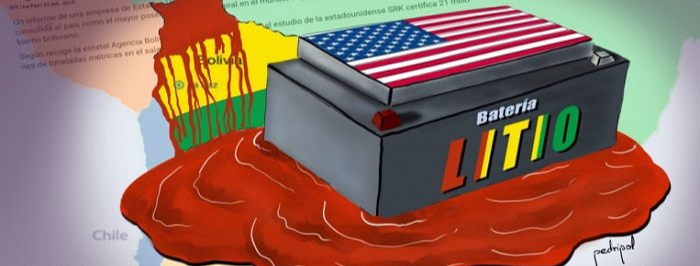
With enormous reserves of lithium, Bolivia is studying appropriate ways for its industrialization, but it is beset by external interests, attracted by the ductile and light alkaline metal, used in the manufacture of batteries, cell phones, ceramics, glass and lubricants.
By Roberto Morejón
With enormous reserves of lithium, Bolivia is studying appropriate ways for its industrialization, but it is beset by external interests, attracted by the ductile and light alkaline metal, used in the manufacture of batteries, cell phones, ceramics, glass and lubricants.
With state control of lithium, the government headed by President Luis Arce has warned of foreign threats to this natural wealth.
The president of the Bolivian Chamber of Deputies, Jerjes Mercado, denounced the interventionist overtones of external forces against lithium and water in the highland country.
Speaking at a meeting of the Non-Aligned Movement in Bahrien, Mercado alluded to the role of world powers against the so-called lithium triangle, i.e. Argentina, Chile and Bolivia, and Bolivia's water.
Bolivians and many Latin Americans in general reacted with acrimony when some time ago the head of the U.S. Southern Command, Laura Richardson, lamented what she considered to be China's "expansion" in Latin America and the Caribbean.
According to the senior official, China "manipulates" governments through what she called "predatory investment practices".
In reality, the four-star general was expressing discomfort because Bolivia is studying with foreign investors, including China, the industrialization of part of its vast lithium reserves.
The general's expressions were rightly qualified in Bolivia and in other latitudes as not at all casual and much less out of context, given the ambition of the Northern power to exercise control over natural resources in what it stubbornly considers to be its "backyard".
Bolivia has reaffirmed its decision not to consult any northern country or financial institutions of big capital to develop its natural resources.
In the exercise of its sovereignty, the South American country chose to work lithium with the nation and companies in possession of the best conditions to process the so-called "white gold".
This is not an improvised plan. Bolivia plans to have 42 lithium industries, a metal that is now one of the most precious commodities in the world due to the need for technological change as a result of the climate and energy crises.
Bolivia has every right to seek the most relevant partners, without foreign pressures.

